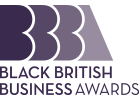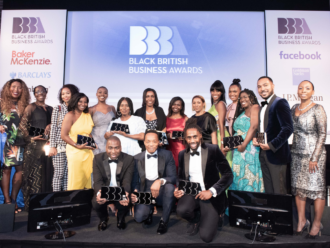Sophie Chandauka, co-founder of the Black British Business Awards
The under-representation of ethnic minority individuals at the workplace is under intense public scrutiny, as recent global crises shone a light on the racial and ethnic inequalities which are still rife in our societies and public institutions and reignited discussion of what can be done. British business is asking themselves why – when the moral argument for equal opportunity is beyond question – they are still failing to reach a consensus on how to shift the dial in a meaningful way for Black, Asian, and Minority Ethnic groups in the workplace.
Achieving sustainable and measurable change is not an easy process. It requires commitment and active participation from those with the power and privilege to recognise, challenge and change the behaviours and practices that prevent equity and inclusion. Those of us who have been driving towards progress know that difficult processes are easy to shy away from and, if history has taught us anything, it is that the individuals who take upon themselves the responsibility to make a difference are a truly rare breed.
It goes without saying that Human Resources (HR) would be expected to be an important part of the ethnic minority advancement agenda. However, research suggests that as well as driving the agenda, HR Directors are also accountable for impeding its progress.
Research shows a lack of trust in HR
In the second edition of our report, ‘The Middle: Progressing BAME Talent Through Collaborative Action’ (The Middle), D&I Practitioners, Executive Sponsors and Employee Network Leaders all aired their dissatisfaction with the HR function. Although this outcome presents an opportunity for introspection and recalibration, the lack of trust in HR Directors amongst these stakeholder groups (who also play a key role in creating an inclusive environment in an organisation) is concerning.
To understand how HR can support minority ethnic talent progression, we must first take a closer look at the challenges they are facing, as well as why HR Directors – in particular – seem to be held to account.
The difficulty of implementing action
Our report shows that Network Leaders perceive HR directors as barriers to change as opposed to strategic allies in advancing ethnic minority representation. The stakeholders surveyed see HR as reticent to tackle issues regarding ethnicity in the workplace and express concern as to HR’s ability to effectively communicate or represent the interests of visible minority talent with senior leaders. The result: watered down communication and failure to implement the type of action that ignites change.
The challenge with ethnic diversity data
Although data cannot identify all the solutions to an issue, it does help us understand the extent of a problem and can be used to hold businesses accountable. In the case of diversity and inclusion, data are critical in supporting and measuring the actions taken to address lack of representation within an organisation.
It is disappointing to see that only two-thirds of companies have processes which attempt to capture information about the ethnic backgrounds of individuals in their companies. Additionally, just 20% of respondents publicly disclose the information regarding the number of ethnic minority individuals in their business and 59% say they either do not use, or rarely use, the data to inform their initiatives regarding employees.
Not only do these figures suggest hurdles to information gathering, but they also imply that many senior leaders who are responsible for acquiring data to inform inclusion initiatives do not see data collection as a priority. Most alarmingly, when asked about how often their company board and executive committee receive management information about the progression of minority ethnic talent in their organisations, only 4.3% of HR Directors answered ‘always’ and a striking 42% did not provide an answer. This begs the question: how can businesses work towards progress if they do not fully understand the extent of their problem?
Additionally, HR Directors may not know, or may be unwilling to disclose the extent to which they share information with their senior leadership. In our study, HR Directors admit that they are often concerned that the data will not reflect the business in a positive light and as a result restrict access to this data due to fears and uncertainties about what might result from their publication.
Although HR Directors are responsible for driving formal and fair processes for promotion, retention and advancement, The Middle report also suggests they are unaware of, or unwilling to confront, the extent to which formal processes might be undermined and distorted by the power of personal connections and company culture.
The discomfort around discussing race in the workplace
The Middle report highlights a pervasive sense of discomfort around discussing race in the workplace, which could stifle and hinder progress. For example, fear around honestly addressing race holds allies back from actively engaging in relationship-building with their colleagues for fear of saying the wrong thing. It may also discourage HR from performing their role of challenging unfair informal practices relating to work allocation, bias and questionable outcomes in recruitment and promotion discussions.
Diversity agendas positioned as competitors
Data from The Middle suggest that gender and LGBTQ initiatives, such as increasing female representation at senior levels, are undertaken at the expense of a focus on the representation of ethnic minorities. HR Directors themselves are amongst those that suggest gender and LGBTQ programmes have frequently edged out race issues.
Stakeholders in the report claim that organisations find gender and sexual orientation agendas ‘easier’ to manage than the ethnicity agenda, which is perceived to be more complex. There are many issues with this notion, not least that these agendas are regarded as competitors for limited time and resources, potentially by HR teams looking to present positive results to leadership rather than expose areas for improvement.
Can change happen without commitment from the top?
While HR departments are criticised for the lack of progress of the ethnic minority agenda, it is important to draw attention to the challenges they face with other stakeholder groups. According to our data, HR Directors are able to see the importance and richness of diversity, but convincing leaders across a business to actively invest in ethnic minority career advancement is difficult and requires energy. HR Directors in our study expressed concern about senior leaders within their organisation who resist change and therefore hinder progress.
The HR Directors surveyed in ‘The Middle’ argue that accountability for the success of the race agenda lies with organisational leadership, and that change cannot happen without absolute commitment from the top. HR Directors also highlight the significant pressure on the most senior and visible minority employees to be advocates for the race agenda, noting that businesses place the burden of responsibility on already marginalised employees rather than committing organisational resources to the issue.
A collaborative approach is vital for the progression of minority ethnic talent
Generally, respondents in The Middle felt that it is unclear who is accountable for the delivery of the ethnic diversity agenda and the specific role HR needs to play. Clearly, there is a gulf between the views of stakeholders and departments, particularly as to where the problem lies. The truth is: working against and undermining one another is not the collaborative approach needed to deliver a programme of change.
HR Directors can shift the organisational narrative from cultural diversity and under-representation as a ‘problem to solve’ to a ‘resource that is under-utilised’, normalise discussions about race and establish a shared vocabulary. However, the progression of visible minority talent is the responsibility of the wider organisation, not solely that of ethnic minority employees, nor any one stakeholder group.
Let’s be frank here: corporate diversity programmes have historically failed. Ultimately, big business has not reached consensus on what action is needed to deal with the structural issues that create barriers to the progression and promotion of minority businesspeople. Organisations must now hold up a mirror and tackle the systemic and cultural barriers that still obscure the everyday experiences of, and impede the progression of, ethnic minority talent.
About The Middle Report:
‘The Middle: Progressing Black, Asian and Minority Ethnic Talent in the Workplace Through Collaborative Action’. The second edition of The Middle report, released by the Black British Business Awards in partnership with J.P. Morgan, offers actionable frameworks for organisations seeking to urgently address racism in the workplace and advance ethnic minority professionals.
The Middle report can be downloaded here: www.thebbbawards.com/the-middle-report





